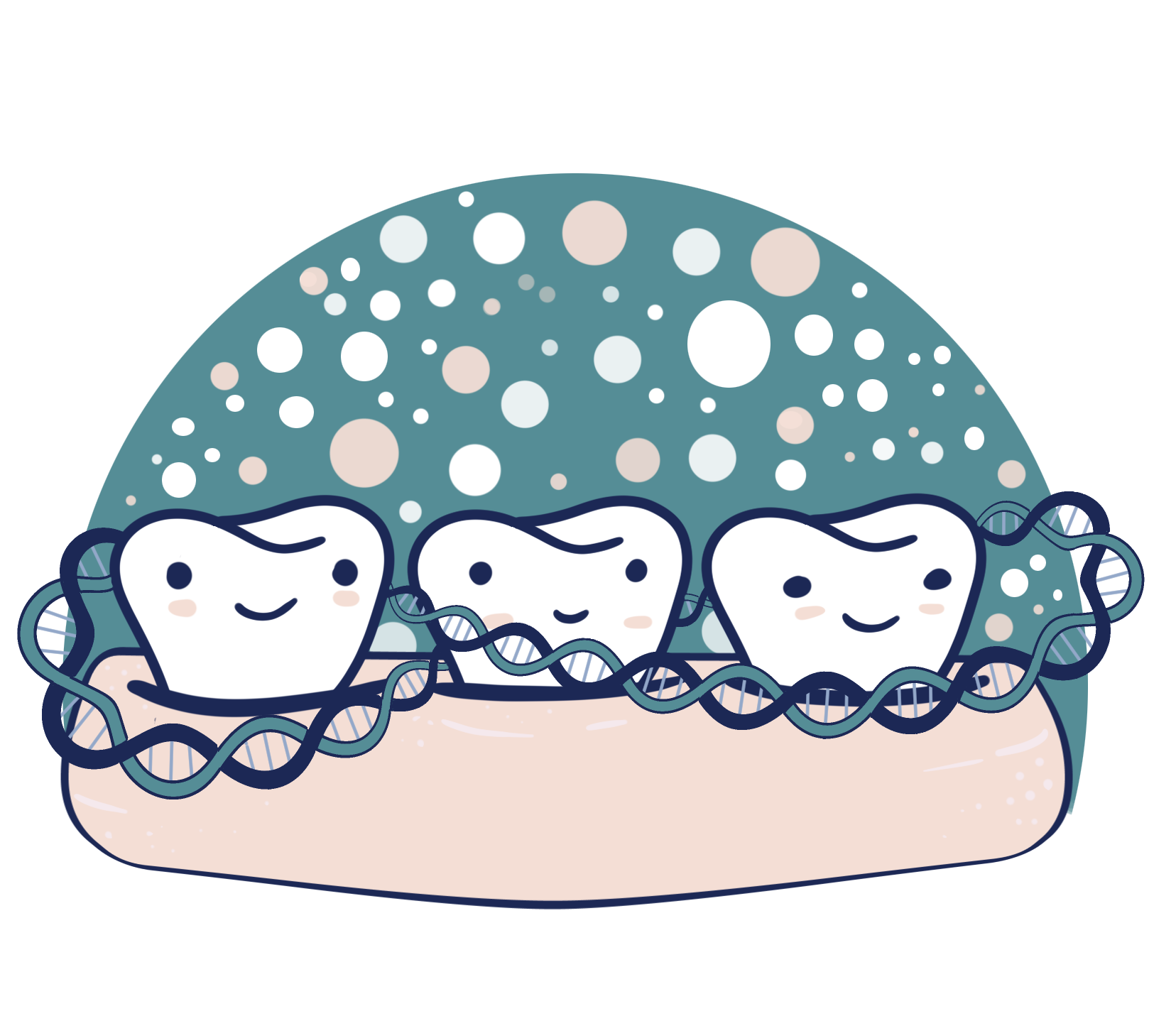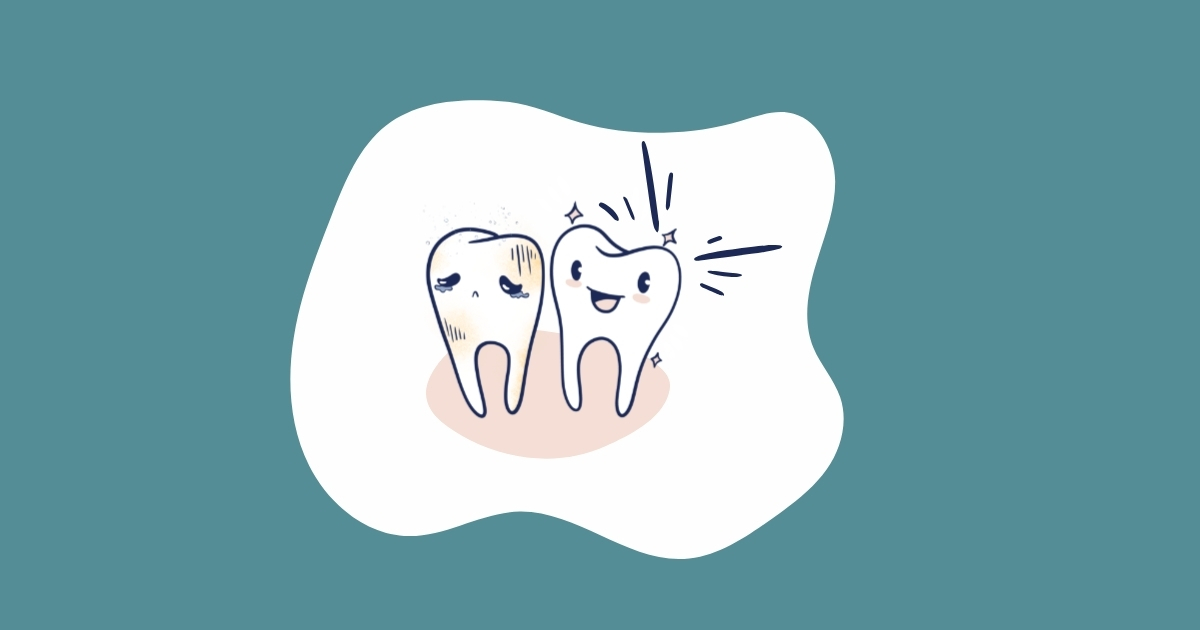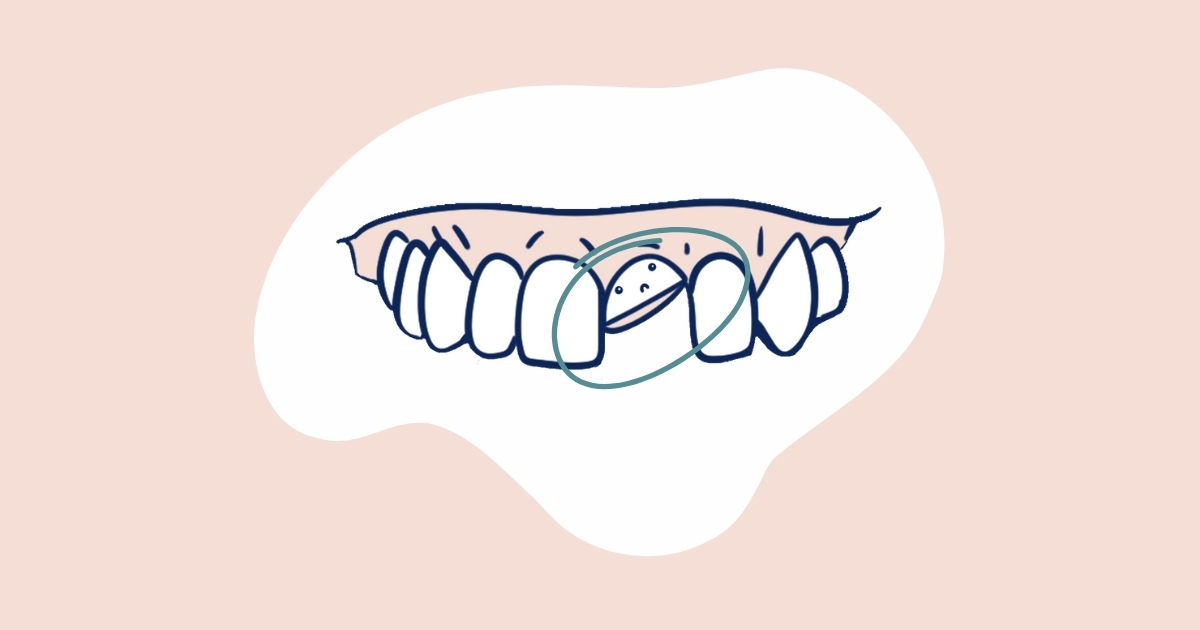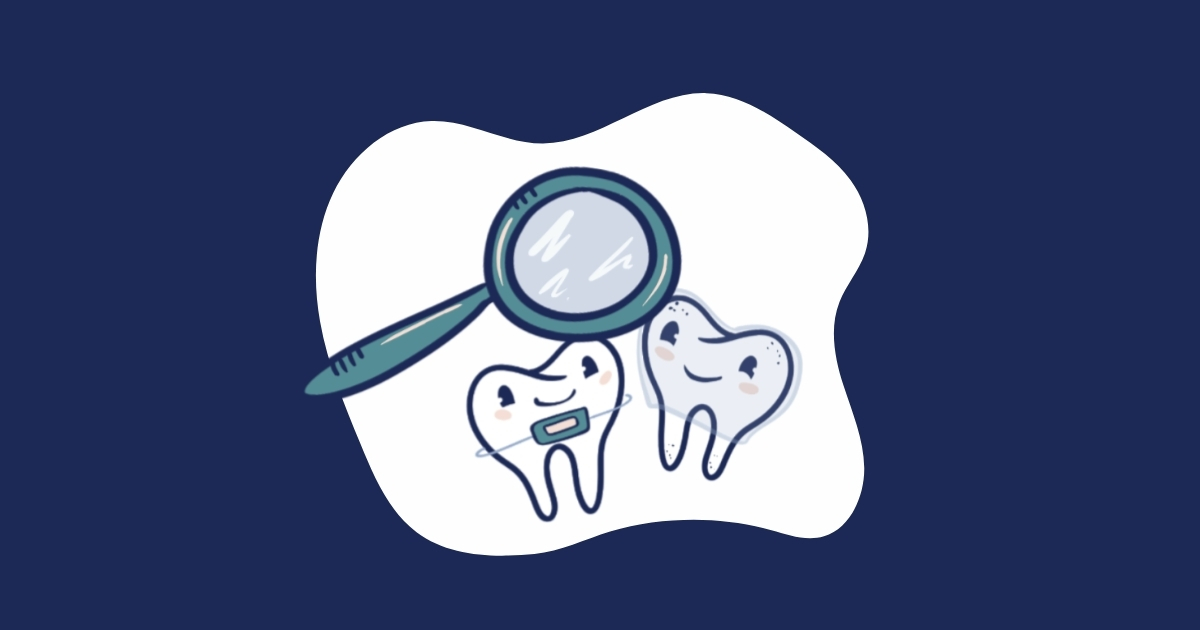What can you blame your parents for?
You’ve probably heard of or experienced dental health issues like crooked teeth, cavities, gum disease, and weakened enamel. But have you ever wondered how these issues develop? Are they because of who you are or due to the personal choices you make? Is tooth health genetic or dietary?
The answer could be both! Your tooth health can be partially hereditary, but your individual approach to diet and dental hygiene also plays a significant role. Read on to learn more about the causes of and treatments for some common dental health issues.
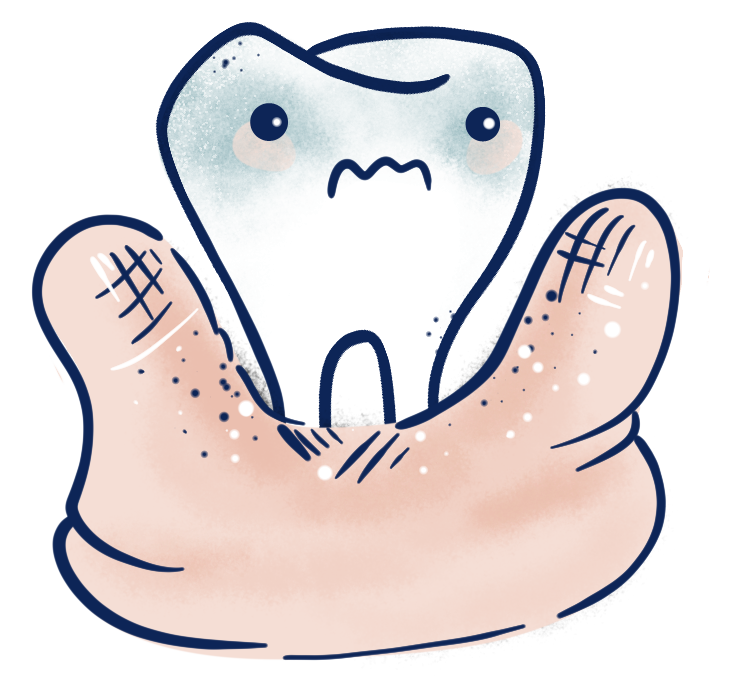
Periodontal Disease
Some research indicates that genetics may play a role in periodontal disease, also known as gum disease. Your genetic bone structure may make you more susceptible to the development of periodontal disease, but it’s not the sole cause.
Personal choices like smoking or other tobacco use, poor oral health habits, inadequate nutrition, the use of certain medications, hormone fluctuations, conditions that affect the immune system, and some diseases may put you at an increased risk for periodontal disease.
But the leading cause of gum disease is our old nemesis, plaque. It builds upon your teeth daily, creating a welcoming atmosphere for bacteria to thrive. Without proper oral hygiene, that plaque builds and hardens into tartar, which only professional cleaning can remove.
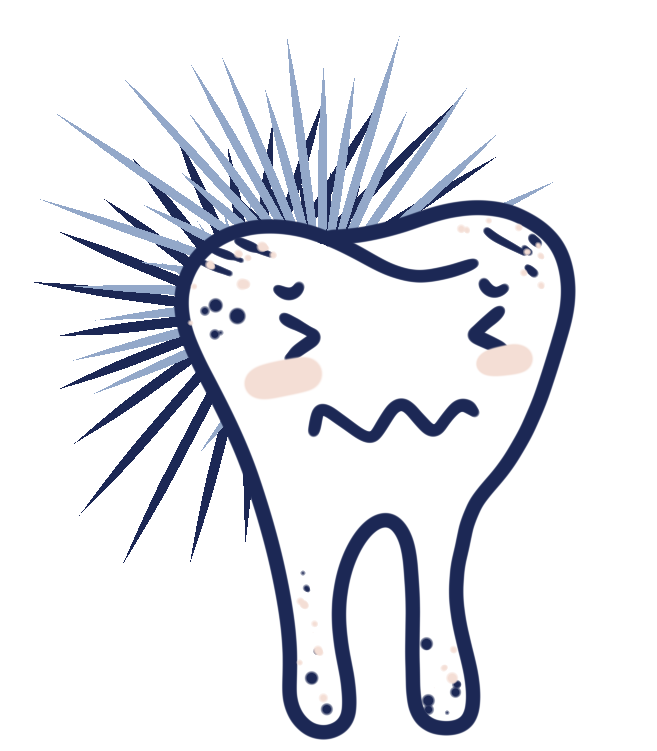
Oral Cancer
Smoking and using other forms of tobacco are the leading causes of oral cancer and cancers of the head and neck. Drinking alcohol also increases your cancer risk. The risk of oral, head, and neck cancers in people who drink and smoke heavily is about 30 times higher than the risk in people who don’t smoke or drink.
Some inherited genetic mutations dramatically increase the risk of developing oral cancer. For example, the risk among people with Fanconi anemia is up to 500 times higher than the general population.
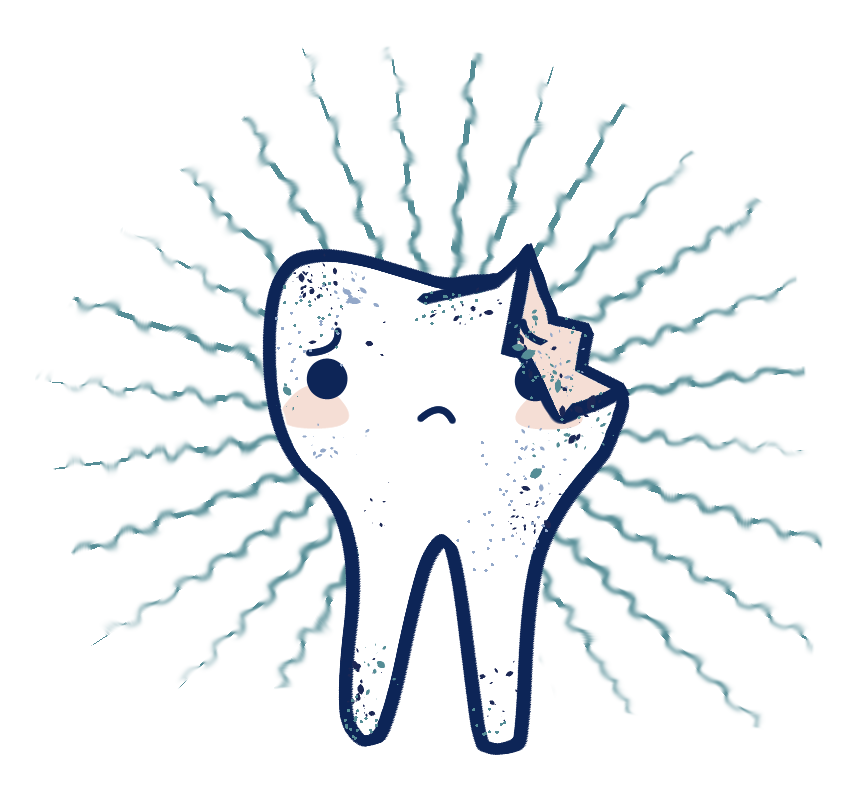
Tooth Decay
When it comes to tooth decay, is your tooth health genetic or dietary?
While there are some genetic links to the increased likelihood of tooth decay, home care can mitigate your risk. Suppose you are predisposed to tooth decay due to excessive bacteria or hereditary dry mouth that makes it difficult to remineralize your teeth. In that case, it’s essential to maintain good oral hygiene habits to counteract these issues. Everyone has bacteria in their mouths, but it’s up to you to control what those bacteria do.
Excessive acid in your diet from sodas, other foods, and drinks, or acid reflux can cause an overall softening of tooth enamel. Demineralization from soda and other acidic beverages usually affects teeth toward the front of your mouth, whereas acid from reflux tends to affect the back teeth.
Softened enamel can be strengthened with fluoride to prevent cavities. But if left untreated, weakened enamel is likely to erode further. That’s why maintaining strong, healthy tooth enamel is so important to your overall dental health.
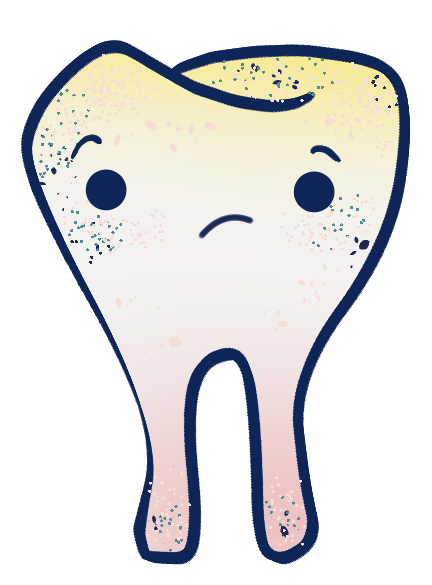
Weak Teeth and Discolored Teeth
Weak teeth, like a predisposition to tooth decay, may be a hereditary tooth health issue. The genetic disorder Dentinogenesis Imperfecta causes weak, breakage-prone teeth and tooth discoloration. It affects 1 in 6,000-8000 people.
Discolored teeth are usually a sign of weakened tooth enamel, which, as mentioned above, can be hereditary. Teeth may appear bluish-gray or yellowish-brown due to thin, weakened enamel. Thinner enamel allows the yellowish color of the dentin, or inner part of the tooth, to show through.
Smoking and regular consumption of coffee or tea can stain teeth and lead to discoloration. Diets high in acid and lack of oral hygiene can weaken teeth further and contribute to tooth color change.
Regular home dental care, professional dental cleanings, and fluoride treatments can both help maintain stronger enamel and reduce tooth staining.
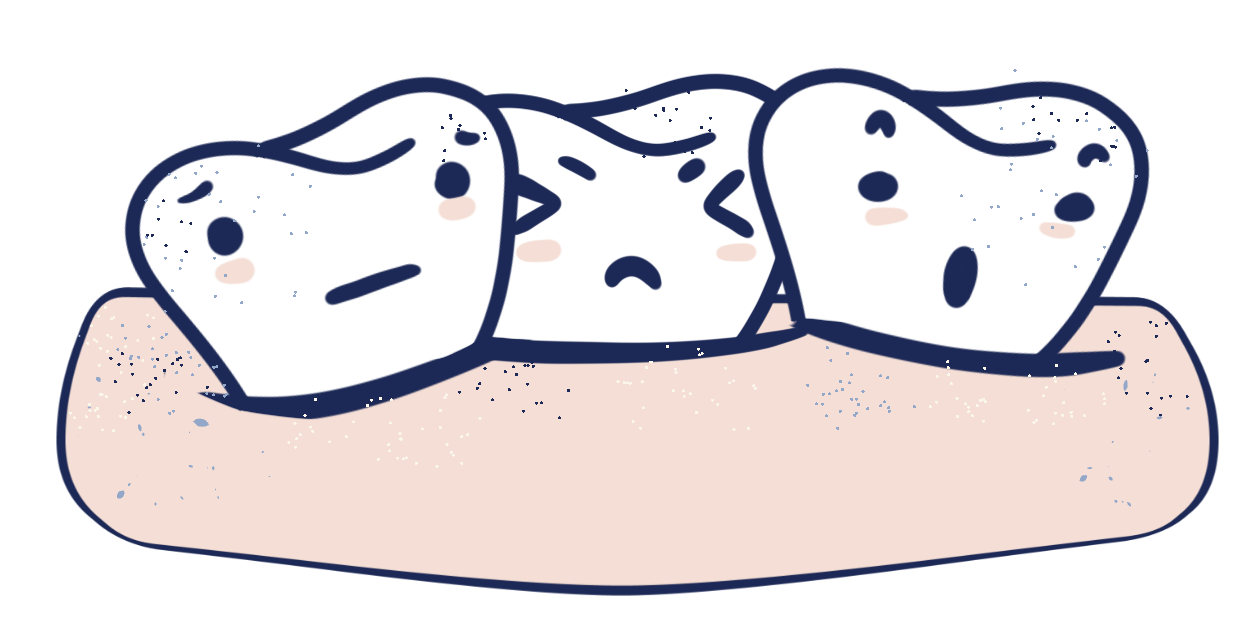
Misaligned Teeth (Malocclusion)
Malocclusion is the technical term used to describe misaligned teeth. It translates literally as “poor bite.” Very few people have the perfect bite, so malocclusion is not uncommon. It’s also hereditary in most cases.
Non-genetic causes of malocclusion include childhood thumbsucking and extended use of pacifiers or baby bottles. Extra or missing teeth, impacted teeth, and jaw injuries may also cause misalignment.
Often, we can treat standard cases of malocclusion with Invisalign at Bass Dentistry. Major misalignment issues may require intervention by an orthodontist.
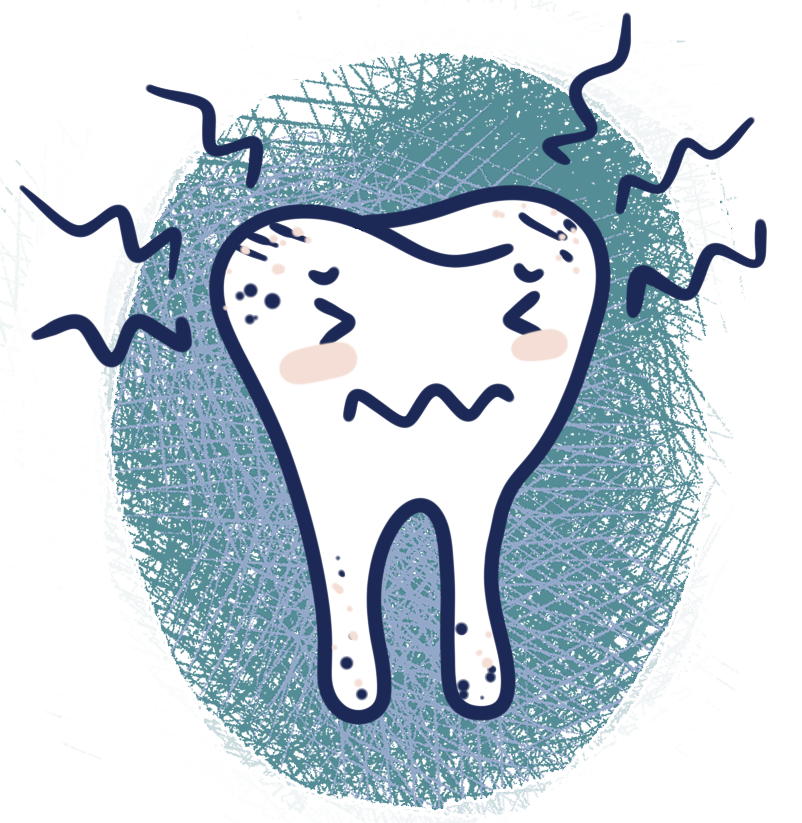
Missing Teeth
Though it’s not directly inherited from one of your parents, it is possible to be missing teeth from birth. This condition is known as Congenitally Missing Teeth (CMT). In most cases, a primary tooth comes in, but a permanent tooth does not.
In very rare cases, people are born without any teeth at all. More commonly, CMT means 1-5 teeth are missing. Wisdom teeth are the most common, with upper lateral incisors next in line.
Missing permanent teeth may also be the result of emergency tooth extraction or an accident that knocks out the tooth. The need for extraction could be related to one of the previously discussed tooth health issues, like tooth decay, oral cancer, or weak teeth, so both genetics and diet or personal habits can cause missing teeth.
In any case, it may be possible for the missing tooth to be replaced with an implant, bridge, or partial.
Although it may be easier to blame your parents for missing teeth, tooth decay, or other issues, it is not always the only cause of your dental health. While genetics do play a role in your predispositions to certain types of tooth health issues, thorough and robust home and professional hygiene habits are the keys to treatment and prevention.
Our team is here to help you navigate your hereditary dental traits and happily educate you about the best ways to maintain your smile for years to come.
Healthy Gums,
Healthy Life
If dental health is important to you and your family, take steps to know how to keep your gums healthy. Gum health is essential to maintaining healthy teeth and overall good dental hygiene. Brush and floss multiple times per day, avoid tobacco products, and use a therapeutic mouthwash.
If you want to know more about maintaining a healthy smile, book an appointment today with Bass Dentistry.

